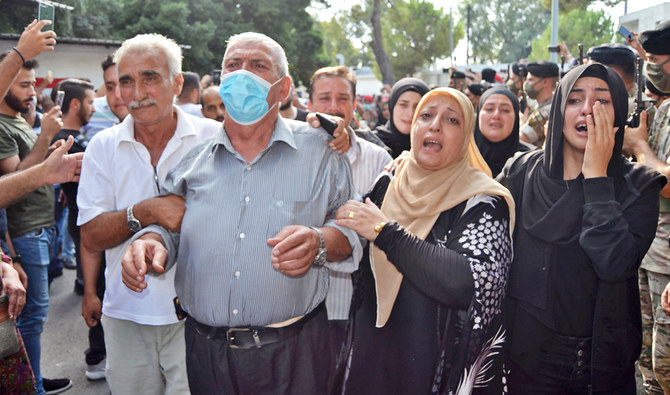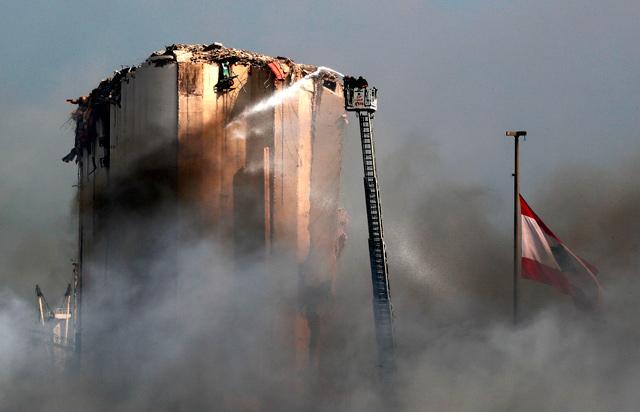by newsmax.com -- President Donald Trump, who on Tuesday presided over the signing of normalization agreements between Israel and two Gulf Arab states, says several other nations are close to following the example of Bahrain and the United Arab Emirates. He also expressed confidence that Saudi Arabia will, when the time is right, join the process of fully normalizing relations with the Israelis, Reuters reported. Trump told reporters at the White House that the Kingdom is among several countries he believes are on the verge of opening diplomatic ties with Tel Aviv, according to a Turkish news agency reporting on the ceremonial signing, Anadolu Agency. Similar remarks about the Saudis following "at the right time" were reported by The Times of Israel. I spoke with the King of Saudi Arabia. We had a great conversation, and I think positive things will happen there, too. He’s a great gentleman. And the Crown Prince — we spoke with the Crown Prince," Trump said, in remarks transcribed by the White House. "So we’ve made tremendous strides. And this is peace in the Middle East without blood all over the sand. I say it: Right now, it’s been blood all over the sand for — for decades and decades and decades. That’s all they do, is they fight and kill people, and nobody gets anything. And this is — this is strong peace, really strong peace, far — and it’s a different way."

Our Prayers with the families of the Lebanese Soldiers Martyrs -
by arabnews.com -- NAJIA HOUSSARI -- BEIRUT: The Lebanese army on Monday killed what it described as the “ringleader of a terrorist cell” during a raid on a house in a town near Tripoli which also left four soldiers dead. Khaled Al-Talawi died after a force from the Military Intelligence Directorate closed in on an apartment where he had been hiding in Beddawi, northern Lebanon. Sgt. Louay Melhem, and soldiers Charbel Jebili, Anthony Takla, and Nihad Mustafa were killed when the militant threw a hand grenade and fired at their patrol before fleeing the scene with three other people. Al-Talawi was later killed in the Zgharta district after he shot at soldiers. Units stopped another fugitive and chased two others. Al-Talawi had been on the run from authorities after his car was used by armed men during the killing of three young guards in the town of Kaftoun on Aug. 21.
The militants were part of a terrorist cell, led by Al-Talawi, linked to Daesh. Since the attack, security services have carried out a series of raids, including one on the Beddawi Palestinian refugee camp, and Syrian refugee camps in the north. Lebanese Army Command revealed that the cell’s members “had received military training, collected weapons and ammunition, which were seized, and carried out several thefts to finance their activities.” Commander of the Lebanese Armed Forces, Joseph Aoun, briefed President Michel Aoun on the military operation in a phone call. Meanwhile, French President Emmanuel Macron’s deadline for Lebanese parties to form a new government of specialists and nonpolitical ministers has expired with as yet, no solution.

By AFP -- BEIRUT — The European Union's commissioner for crisis management on Saturday called for the urgent formation of a "credible" government in Lebanon before a second phase of financial support for the crisis-hit country can be released. Janez Lenarcic said the EU had mobilised 64 million euros ($79 million) for the emergency response to a devastating port blast that killed more than 190 people and wounded thousands in Beirut on August 4. The next round of funding would be for reconstruction, he said, but warned it would have to go hand in hand with reforms because the international community was not willing to support practices "that led to financial collapse and economic crisis". The tragedy occurred when hundreds of tonnes of ammonium nitrate fertiliser that had been left unattended in a port warehouse exploded. It came as the Lebanese people were already reeling from the country's worst economic crisis in decades and rekindled smouldering rage over official neglect and a political class accused of corruption.
The government resigned in the wake of the disaster, but Lebanon has rejected an international investigation, saying it would carry out its own probe aided by foreign experts. “We need a credible government that enjoys the confidence of the Lebanese people and is determined to take the country in the right direction,” Lenarcic told AFP after arriving in Lebanon on board a humanitarian aid flight. “Lebanon’s political class has to provide what people demand and this is also what the international community expects. I’m talking about governance, not only economic reforms. There has to be a change in the way this place is governed,” he said.

By NAJIA HOUSSARI -- arabnews -- BEIRUT: Reports about the spread of the coronavirus disease (COVID-19) in Roumieh Prison, the largest in Lebanon, have caused panic among the families of inmates who fear disaster if quick measures are not taken. Several guards and inmates are reported to have contracted the virus. Lebanon’s prisons already suffer from severe overcrowding, running at 160 percent of capacity at the end of 2019. Roumieh, located east of Beirut, houses more than 5,500 prisoners and has a separate juvenile section. The prison was opened in 1970 with a capacity of about 1,500 prisoners, but the number has grown over the years, making social distancing impossible. The possibility of granting a general amnesty to all inmates is currently under discussion.
Lawyer Ghida Franjieh said: “The judiciary ordered the release of many detainees since the announcement of the general mobilization to avoid crowding in detention facilities.” She added that parliamentary intervention would be required to ensure the release of those convicted of minor crimes. “There are many questions that need answers: Were the infections discovered in the early stages?” she added. “Were the infected people isolated immediately?” “The increase of overcrowding could lead to a health disaster in Roumieh Prison that may cross prison boundaries if the internal security forces and the judiciary do not take all necessary measures to protect infected prisoners and those in contact with them, especially since many prisoners suffer from weak immunity due to poor living conditions and health.”
Khazen History


Historical Feature:
Churches and Monasteries of the Khazen family

St. Anthony of Padua Church in Ballouneh
Mar Abda Church in Bakaatit Kanaan
Saint Michael Church in Bkaatouta
Saint Therese Church in Qolayaat
Saint Simeon Stylites (مار سمعان العامودي) Church In Ajaltoun
Virgin Mary Church (سيدة المعونات) in Sheilé
Assumption of Mary Church in Ballouneh
1 - The sword of the Maronite Prince
2 - LES KHAZEN CONSULS DE FRANCE
3 - LES MARONITES & LES KHAZEN
4 - LES MAAN & LES KHAZEN
5 - ORIGINE DE LA FAMILLE
Population Movements to Keserwan - The Khazens and The Maans
ما جاء عن الثورة في المقاطعة الكسروانية
ثورة أهالي كسروان على المشايخ الخوازنة وأسبابها
Origins of the "Prince of Maronite" Title
Growing diversity: the Khazin sheiks and the clergy in the first decades of the 18th century
Historical Members:
Barbar Beik El Khazen [English]
Patriach Toubia Kaiss El Khazen(Biography & Life Part1 Part2) (Arabic)
Patriach Youssef Dargham El Khazen (Cont'd)
Cheikh Bishara Jafal El Khazen
Patriarch Youssef Raji El Khazen
The Martyrs Cheikh Philippe & Cheikh Farid El Khazen
Cheikh Nawfal El Khazen (Consul De France)
Cheikh Hossun El Khazen (Consul De France)
Cheikh Abou-Nawfal El Khazen (Consul De France)
Cheikh Francis Abee Nader & his son Yousef
Cheikh Abou-Kanso El Khazen (Consul De France)
Cheikh Abou Nader El Khazen
Cheikh Chafic El Khazen
Cheikh Keserwan El Khazen
Cheikh Serhal El Khazen [English]
Cheikh Rafiq El Khazen [English]
Cheikh Hanna El Khazen
Cheikha Arzi El Khazen
Marie El Khazen